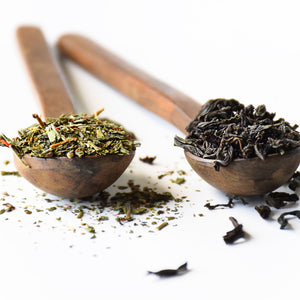Tea is a beloved beverage enjoyed worldwide for its diverse flavors, rich history, and numerous health benefits. A key component that significantly influences these aspects of tea is tannins. Understanding what tannins are and how they affect your tea can enhance your appreciation of this ancient drink. In this article, we delve into the world of tannins in tea, exploring their characteristics, health benefits, and potential downsides.
What are tannins in tea
Tannins in tea are a type of polyphenol, naturally occurring compounds found in various plants, including tea leaves. These compounds are known for their astringent properties, which contribute to the distinct dry, slightly bitter taste of tea. Besides influencing flavor, tannins also play a role in tea's health benefits, thanks to their antioxidant and antimicrobial properties.
The difference between tannins and caffeine
While both tannins and caffeine are present in tea, they serve different purposes and have distinct effects on the body. Tannins are responsible for the astringency and some health benefits of tea, whereas caffeine is a stimulant that affects the central nervous system, providing an energy boost and enhancing mental alertness.
Impact of Tannins on Tea Characteristics
Tannins significantly influence the characteristics of tea:
- Flavor: Tannins contribute to the astringency and bitterness in tea, creating a unique taste profile that many find refreshing.
- Color: The presence of tannins affects the color of the tea. Higher tannin levels, typically found in black teas, result in a darker brew, while lower levels in green and white teas produce a lighter color.
- Mouthfeel: The astringency of tannins provides a dry, puckering sensation in the mouth, adding to the overall sensory experience of drinking tea.
Tannin levels fluctuate in different teas
Factors affecting tannin levels in tea
Several factors influence the tannin content in tea:
- Type of Tea: Black teas generally have higher tannin levels due to the oxidation process, while green and white teas have lower levels.
- Brewing Time and Temperature: Longer steeping times and higher water temperatures increase tannin extraction, leading to a stronger, more astringent tea.
- Quality of Tea Leaves: High-quality tea leaves might have a different tannin composition compared to lower-quality leaves, affecting both flavor and health benefits.
Managing tannins intake
To enjoy the benefits of tannins while minimizing potential downsides, consider the following tips:
- Choose Tea Wisely: Opt for green or white teas if you prefer a milder flavor and lower tannin content.
- Adjust Brewing Methods: Steep tea for a shorter time and at lower temperatures to reduce tannin extraction.
- Use Additives: Adding milk or lemon can help neutralize some of the astringent effects of tannins, making the tea more palatable.
The health benefits of tannins
Antioxidant properties
Tannins have potent antioxidant properties, which help protect the body from damage caused by free radicals. This can lower the risk of chronic diseases such as heart disease and cancer by reducing oxidative stress and inflammation.
Anti-Inflammatory Effects
The anti-inflammatory effects of tannins can help manage inflammation in the body. This is beneficial for overall health, potentially aiding in the prevention and management of conditions like arthritis and other inflammatory diseases.
Oral Health
Tannins' antimicrobial properties can contribute to better oral health by inhibiting the growth of bacteria in the mouth. This can help prevent cavities, gum disease, and other dental issues, making tea not just a refreshing beverage but also a potential ally in maintaining oral hygiene.
The downside of tannins
Digestive Issues
While tannins offer several health benefits, they can also cause digestive discomfort in some individuals. Consuming tannin-rich tea can lead to stomach upset or nausea, especially if consumed on an empty stomach or in large quantities.
Nutrient Absorption
Tannins can interfere with the absorption of certain nutrients, particularly non-heme iron found in plant-based foods. This can be a concern for individuals at risk of iron deficiency, such as vegetarians, vegans, and pregnant women. It's advisable to avoid drinking tea during meals to minimize this effect.
FAQs
Does all tea have tannins?
Yes, all true teas derived from the Camellia sinensis plant, including black, green, white, and oolong teas, contain tannins. However, the amount of tannins can vary significantly depending on the type of tea and how it is processed. Black tea, for instance, generally has higher tannin levels due to its oxidation process, while green and white teas have lower levels.
Does herbal tea have tannins?
Herbal teas, which are not made from the Camellia sinensis plant, typically have little to no tannins. These teas are made from a variety of other plants, such as chamomile, peppermint, and rooibos, which do not contain the same tannins found in true teas. Therefore, herbal teas can be a good alternative for those who are sensitive to tannins.
Are tannins in tea bad for you?
Tannins in tea are not inherently bad for you. They offer several health benefits, including antioxidant, anti-inflammatory, and antimicrobial properties. However, excessive consumption of tannins can lead to digestive issues and may interfere with the absorption of certain nutrients, like iron. Moderation is key, and individuals with specific health concerns should manage their tannin intake accordingly.

